- Home
- Scott Turow
One L Page 6
One L Read online
Page 6
In general, that kind of good feeling had continued to prevail among us, but in the first week there had been some changes in our dealings with each other. For one thing, we were suddenly talking of nothing but law. People stopped asking me about my background or how I liked New England. The classes seemed too stimulating and difficult to allow talk of much else. We were all explaining, comparing, seeking each other’s help. Out of class, school became an environment of legal talk, almost all of it well-spoken. I reported to Annette each night my general wonder at how enormously articulate everybody seemed. And people were beginning to inject that new vocabulary into their conversation, speaking Legal to each other. It was strange at first to hear classmates saying in the hallways, “Quaere if that position can be supported?” Or ern
ploying Legal in other contexts—”Let me add a caveat” to mean “Let me give you a warning.” People were self-conscious about how oratorical and windy they sounded. They uttered a little hiccup or a laugh when they tried out their Legal, but most of us persisted, practicing on each other.
It was Nicky Morris who most neatly summed up what we were all trying to do in using legalisms. In the last meeting of Civil Procedure that week, a woman answered a question Morris had posed. “The court does not have subject matter jurisdiction over the person,” she said.
“I’m not sure I know what that means,” Morris told the woman, “but I’m still glad to hear you talking that way. After all,” he said, “you can’t be a duck until you learn to quack.”
9/14/75
(Sunday)
Work, work, work.
I’ve been at it all weekend, struggling to finish the Legal Methods memo so I can struggle the rest of the week to finish the daily assignments.
I keep waiting for things to relent somehow. I’m blown out. I’ve never experienced mental exhaustion like what I felt by the end of each day this week. The ceaseless concentration on books and professors, and even on classmates who never went low-key, left me absolutely blithering when I got home each evening. The weekend has not been that much better. I’m still too excited to sleep much and the stuff is always in my head. I feel as if I’ve been locked in a room where all the walls say “Law.”
I enjoy it—I enjoy it. But it’s still an emotional merry-go-round. Studying, I often feel as if I’m being borne aloft, high just on the power of enlarging knowledge, making connections, grabbing hold. Then, suddenly, I’m close to dread. Tomorrow we face Perini again; when I picked up my Contracts book, I felt a quiver in my gut. I’ve just spent the last forty-five minutes marching around the study, rehearsing what I’d say if I were called on for tomorrow’s case.
I’m running so hard that I keep putting off even a few minutes for genuine reflection about what I’m up to. I feel as if I am doing some enormous scrimshaw—fine and minute and detailed—from six inches away, without any chance to step back to see the actual design. It’s all darkness and eyestrain and a constant chipping away, and I know that the bone I’m working in is my own.
Maybe it’ll get easier soon. Last night we went to the orientation dinner of the Harvard Law School Community Association—the married students’ group—and the topic of conversation all evening was how hard people work as 1s, especially in the beginning. The dean talked about it in the speech he gave, and so did the association secretary. It was the subject of dinner conversation as we ate our meal.
“That first week or so,” one man, a 2L, said, “those were the longest days of my life.”
A woman sitting at the table said, “Amen.”
Amen.
On Monday, Aubrey Drake stopped me in the hallway and asked me if I wanted to join a study group. I had met Aubrey during registration week. He was older, near thirty, and he had introduced himself to me because he had been at Amherst. He’d graduated four years before I had, but we had friends in common and we seemed to take to each other quickly. He was an urbane man, tall, dark-haired, good looking, with a kind of cultivated charm which had been lost on my generation of students in the political chaos of the ‘60s.
“It’s nothing formal yet,” Aubrey told me about the study group. “Just some people getting together at lunch to talk it over.”
Study groups are another of the basics of the first-year life. A small number of students, usually between four and eight, meet regularly to discuss common difficulties which have arisen with course work. There is no set regime for study-group operation. Some groups merely hash over random questions; others use their time together to work out formal exercises; some spend the year developing long course outlines which are exchanged among group members before exams. Most of the faculty encourage the formation of study groups. They afford each student an opportunity for extensive talk about legal problems, something rarely possible in class. And aside from their educational value, study groups have a kind of therapeutic function, offering a much valued element of stability amid the uncertainties of first-year life. The other members of your study group are the people to whom you can always go with questions, the only students in the school whom you know have committed themselves to your support.
As with the prepared study aids which I had been sure I would be too proud to use, I had also figured before starting school that I would not join a study group. I was too mature, I thought, to need that sort of T-group; and besides, I preferred to do things on my own. By the start of the second week, with groups forming throughout the section and upper-year students like Mike Wald and Peter Geocaris advising me to join, I greeted Aubrey’s offer eagerly. My only reservations were that I wanted to be sure there would be room for Terry—we’d discussed a group already—and I was unwilling to saddle myself with the responsibility of a course outline, a project which I knew a couple of the groups in the section had already begun, each member taking on a subject for the term.
Aubrey agreed to both propositions and at lunch, Terry and I met with him and the other people he’d contacted: six or seven men and women, none of whom I yet knew well. The conversation was tentative. In the second week of school, everyone was naturally leery of a long-run commitment. Whatever the group would do, however, everyone present seemed anxious that it include a regular meeting in the hour before Perini’s class to talk over the cases for the day. Perini was still following that routine of heavy-going inquisitions, and we all remained powerfully intimidated.
When we met upstairs in the Pound Building the next day for the first pre-Perini go-round, the group had mushroomed. It seemed as if each of us had asked along a friend or two and there were fifteen or sixteen people sitting around a large oval table. Aubrey found the numbers unwieldy and I preferred to be in agroup that would consider more than Contracts and erecting defenses against Perini.
By the end of the week, a smaller group had broken away. On Thursday afternoon, the six of us met in the slate-walled lounge in Harkness to work through a statutory problem Mann had assigned in Criminal Law. Aside from Aubrey, Terry, and me, there were three other men. Kyle Schick had just graduated from Harvard the spring before. He was tall and narrow, with a huge corolla of springy blond hair. I didn’t know him well—he was someone Aubrey had met. He struck me as a little self-serious and overly ingratiating, but he was also good-humored, quick, and admirably well versed in Civil Procedure, a knowledge gathered in the summers spent working in his father’s law offices in Iowa. Sandy Stern had recently finished an engineering degree at MIT. He wore a big walrus moustache and personally had something of the manner of a slow-turning drill. Sandy went straight ahead without self-consciousness or faltering. In class, he had already become quite outspoken. No point was too small for Sandy to give it scrutiny or comment, and always in the same dry, almost toneless, voice. I had no idea how he had arrived in the study group, but once we’d had the aid of his precise analytic skills in working over problems, he became a valuable and accepted member.
Finally, only that afternoon, I had invited Stephen Litowitz into the group. A small, stocky ma
n, Stephen sat behind me in Contracts and I had wanted to get to know him better. We seemed to have an extraordinary amount in common. He’d been raised in the same neighborhood in Chicago as Annette and I had been. He was a Ph. D. in sociology. Like me, he had taught in a university for a couple of years before law school.
The problem Mann had posed for us concerned a complicated hypo in which an accused rapist claimed drunkenness as an excuse for the crime. We were to figure out if such a defense were feasible under the Model Penal Code. The provisions of the code interlocked and cross-referenced so intricately that the job took hours of excruciatingly careful reading, paging back and forth between various sections to reconcile apparent contradictions. It was a wonderful session, though. If I was excited by the process of probing at a legal problem on my own, then I was positively intoxicated by the kind of speed and depth of insight that could be achieved by a group of bright, willing people working together. It was a sort of good-spirited intellectual melee. Except for Aubrey, who was too polite to shout or interrupt, we spent the time half out of our chairs, storming at one another, arguing points—each trying to explain before someone else cut him off.
When the session was over, we were all pleased. We agreed that we were a group, and set up a schedule of further meetings. Sandy and Kyle, who lived in the dorms, went upstairs, and Stephen, Terry, Aubrey, and I sat around for another few minutes. All older, the four of us seemed to feel particularly comfortable together. We talked about what had brought us to law school, each in the midst of another career.
“Man,” Terry said, “sometimes I just tell myself, Hey, you didn’t wanna be a grown-up. You’re not ready yet. You wanna stay loose.”
I admitted that I’d had the same thoughts myself.
Aubrey and Stephen, though, disagreed. Each had more tangible reasons for being here. For Stephen, the law degree was a way to find a secure job teaching. Even though he had his doctorate, the academic job market in his field was so clogged that only that kind of acute specialization would guarantee that he could find a teaching position which would lead to tenure.
Aubrey’s story was the most interesting, since he had already been through business school and one professional education. In ‘68 he’d finished at Harvard B School and gone into importing for a while, then opened an art gallery in Los Angeles which specialized in East Asian works. The gallery had folded four years later, but not before consuming every dime he had. So now he was in law school. Aubrey told the story cheerfully. Things, he said, were lower-keyed than the mid-‘60s, when many of his law-school friends regularly wore coats and ties to class. At any rate, he felt he could take whatever law school required. He was tired of the boom/bust risks of business. He wanted to work for somebody else with the guarantee of a good living.
When I went home that evening I felt specially satisfied. Not living in the dorms, I had felt, in the first couple of weeks, a little isolated from my classmates. Now, with the group, I knew I’d be having regular contact with some of the people around me. The group met nearly every day. Three mornings a week we gathered to drill each other on the Contracts cases before facing Perini, then on Thursday or Friday afternoon we’d get together for a longer session on Civ Pro or Torts or Criminal.
More important, I became close almost at once with Aubrey and Terry and Stephen. Most often I’d eat lunch with one of them each day. We’d talk on the phone, play squash, often spend time on the weekends. We were frank with each other, personal. The three of them were good friends to me and in many ways they became my year.
Finally during that second week, I began to volunteer in class.
My motives for speaking were complicated. One was a promise I’d made myself. While I was deciding whether to apply to law school, I had made it a point to sit in on a few law classes. When I did, I was bothered by the reticence of the students. One class had disturbed me especially. It was an upper-year Evidence course, and the day I saw it the professor was talking about lawyer-client privilege. The questions he was asking were ones to which even I, as a layman, could have tried an answer. Yet no more than two or three of the students in that room had responded, and by the end of the period I saw that class, stoical, frozen, as emblematic of the state—halfway between being alienated and being cowed—which seemed to have gripped so many of my friends while they were law students. I couldn’t understand it and I’d sworn that I wouldn’t let that happen to me.
For the most part, though, raising my hand was not the result of any well-thought-out scheme. I am something of a babbler, especially when I’m tense. Outside of class, I was on a kind of oral jet stream, cruising along on my own talk, assailing anyone who would listen, like a drunk on a bus. In class, it was getting increasingly hard to keep my mouth shut. I was so engrossed in each session that I stifled myself only out of fear that I would not perform well.
On the Tuesday of the second week, I finally gave in. It was in Perini’s class. We were studying Hadley v. Baxendale, a famous case which established a limit on the kinds of damages a winning plaintiff in a contract suit could collect. Perini asked us what the rule of Hadley was not designed to do. He said there was a one-word answer. People raised their hands offering responses ranging from “work” to “make sense,” and Perini toured the room, quickly shooting them down: “No,” “Never,” “Silly,” “You think that makes sense?”
When he saw my hand, he whirled and pointed.
“To punish,” I said. I was shocked I was speaking. My heart was slamming in my chest.
Perini came closer, tilting his head. “How so?”
“The way the rule works, it doesn’t act to punish somebody who breaches a contract.”
“What difference does that make?”
“It means that damages aren’t awarded to deter breach.” “What are they intended to do, then?” Perini asked.
“Justcompensate the loss. j “Right!” said Perini. “Contract damages are merely intended to compensate plaintiff for his loss. You leave all that soul-splitting over punishment behind in Torts and Criminal Law—it’s not for Contracts!”
That was the end. Perini was already on his way back to the podium. A trivial incident. Yet I ached with pride. People congratulated me all day. Kyle, a little fulsomely, told me I had seen right inside Perini’s head.
In spite of the success of the first venture, I felt ambivalent about volunteering again. For one thing, it seemed a crazy feistiness, if I was scared of Perini and uncomfortable at the idea of being called on, to willingly expose myself to the same kind of interrogation. More important, I’d begun to realize how complicated the personal politics of speaking in class had become.
By the second week, a mood of disapproval had grown up in the section toward any sign of aggressiveness or competitive spirit displayed by a fellow student. Some of that is generational. To want to do better than others is out of keeping with the egalitarian ethic on which most of us who came of age after the 1960s cut our teeth. But part of it too, I thought, had to do with a widespread effort by classmates to suppress their own ambitions. We had all been extremely successful students in the past, but a desire to repeat that success here was not only an unrealistic hope amid so talented a group, but even a dangerous one when you considered the extent to which it could be frustrated. At the end of the term, the professors would examine and then grade us. Given our present incompetence with the law, that was a frightening idea. During the first weeks most people had been struck with the seeming equality of everyone’s abilities, and that became an impression many of us were eager to cling to. If everyone was the same, you couldn’t come out ahead, as you always had before, but you wouldn’t end up behind, either, which would be crushing and which, at the moment, seemed the more real possibility. Parity, then, became a kind of appealing psychic bargain everybody swore with himself, renouncing competitiveness in the process.
I remember a conversation I had with a classmate, Helen Kirchner, late in the second week. She told me
she already hated law school.
When I asked her why, she said, “Because the people are so aggressive.”
I knew she had been through Exeter and Princeton at the top of each class and I asked if she wasn’t aggressive herself.
“I am,” she answered, “but I try not to show it.”
Trying not to show it became a dominant style of behavior in class. Some people seemed to withdraw -almost from the initial sessions. I was surprised a number of times during those first weeks when I’d meet members of the section who proved outside the classroom to be sociable and outgoing. I’d never have guessed that from the look of stony remoteness they had while sitting in class.
The other means of containing competitive feelings was simply to deny them. Many people said they didn’t care how they did, what their grades might be, how they were perceived. That was what I often said. Like Helen, those people tended to blame others for the feeling of a competitive atmosphere.
But with the great majority of us, that competitiveness was simply part of our nature. It was what had gotten us through the door of the joint in the first place. There was something, some faith in distinction, which had led us to Harvard Law rather than to a less revered school. And we were all gladly training now for an intensely competitive profession in which there are winners and losers every time the jury returns, or the judge speaks. Nor was it unreasonable that we were competitive. Competitiveness had led to recognition and pleasure for many of us in the past; it was an old and rewarding habit.

 Testimony
Testimony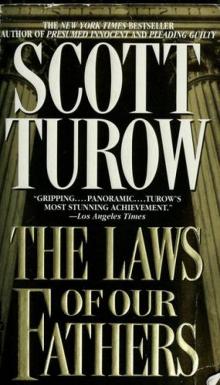 The Laws of Our Fathers
The Laws of Our Fathers Ordinary Heroes
Ordinary Heroes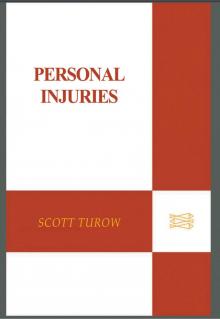 Personal Injuries
Personal Injuries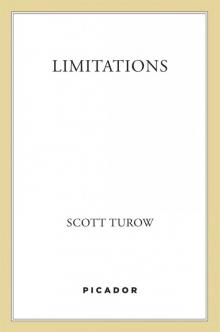 Limitations
Limitations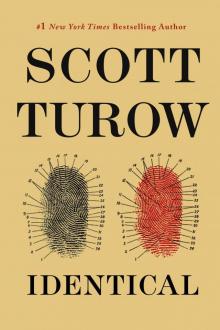 Identical
Identical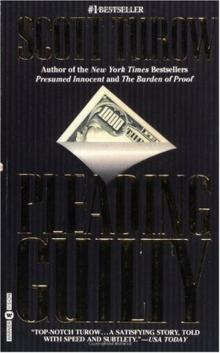 Pleading Guilty
Pleading Guilty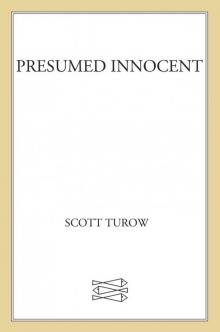 Presumed Innocent
Presumed Innocent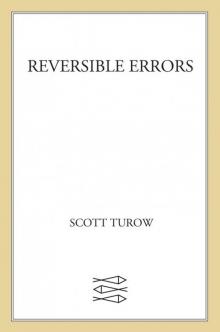 Reversible Errors
Reversible Errors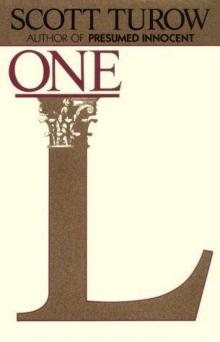 One L: The Turbulent True Story of a First Year at Harvard Law School
One L: The Turbulent True Story of a First Year at Harvard Law School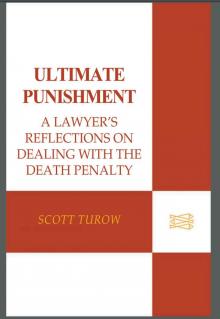 Ultimate Punishment
Ultimate Punishment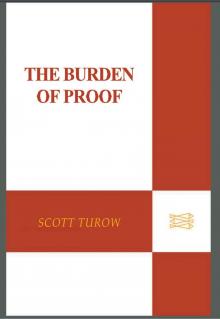 The Burden of Proof
The Burden of Proof Ordinary Heroes (2005)
Ordinary Heroes (2005)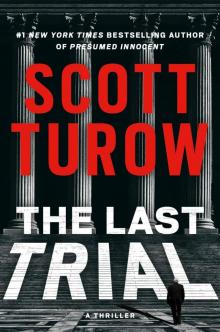 The Last Trial
The Last Trial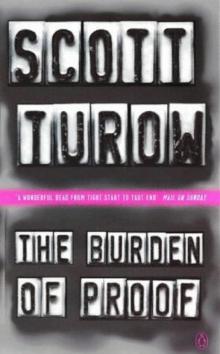 The Burden of Proof kc-2
The Burden of Proof kc-2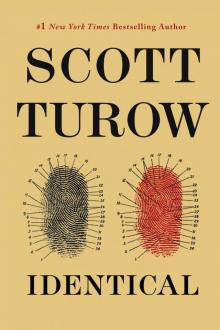 KC09 - Identical
KC09 - Identical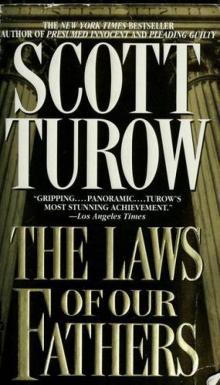 The Laws of our Fathers kc-4
The Laws of our Fathers kc-4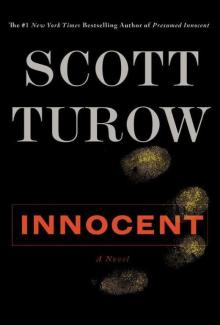 Innocent kc-8
Innocent kc-8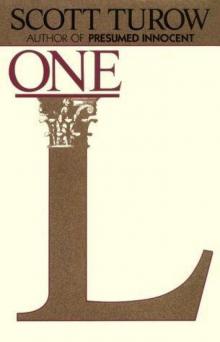 One L
One L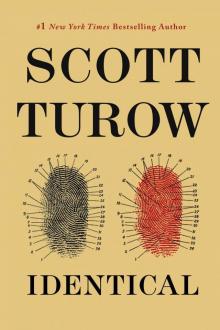 Identical kc-9
Identical kc-9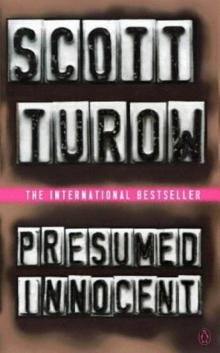 Presumed innocent kc-1
Presumed innocent kc-1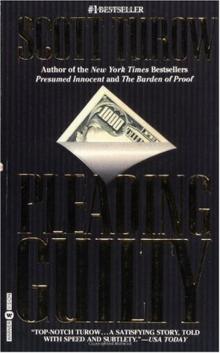 Pleading Guilty kc-3
Pleading Guilty kc-3 One L (1977)
One L (1977)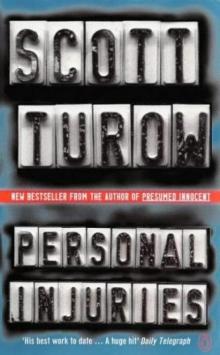 Personal injuries kc-5
Personal injuries kc-5